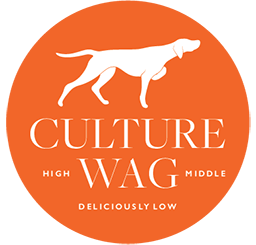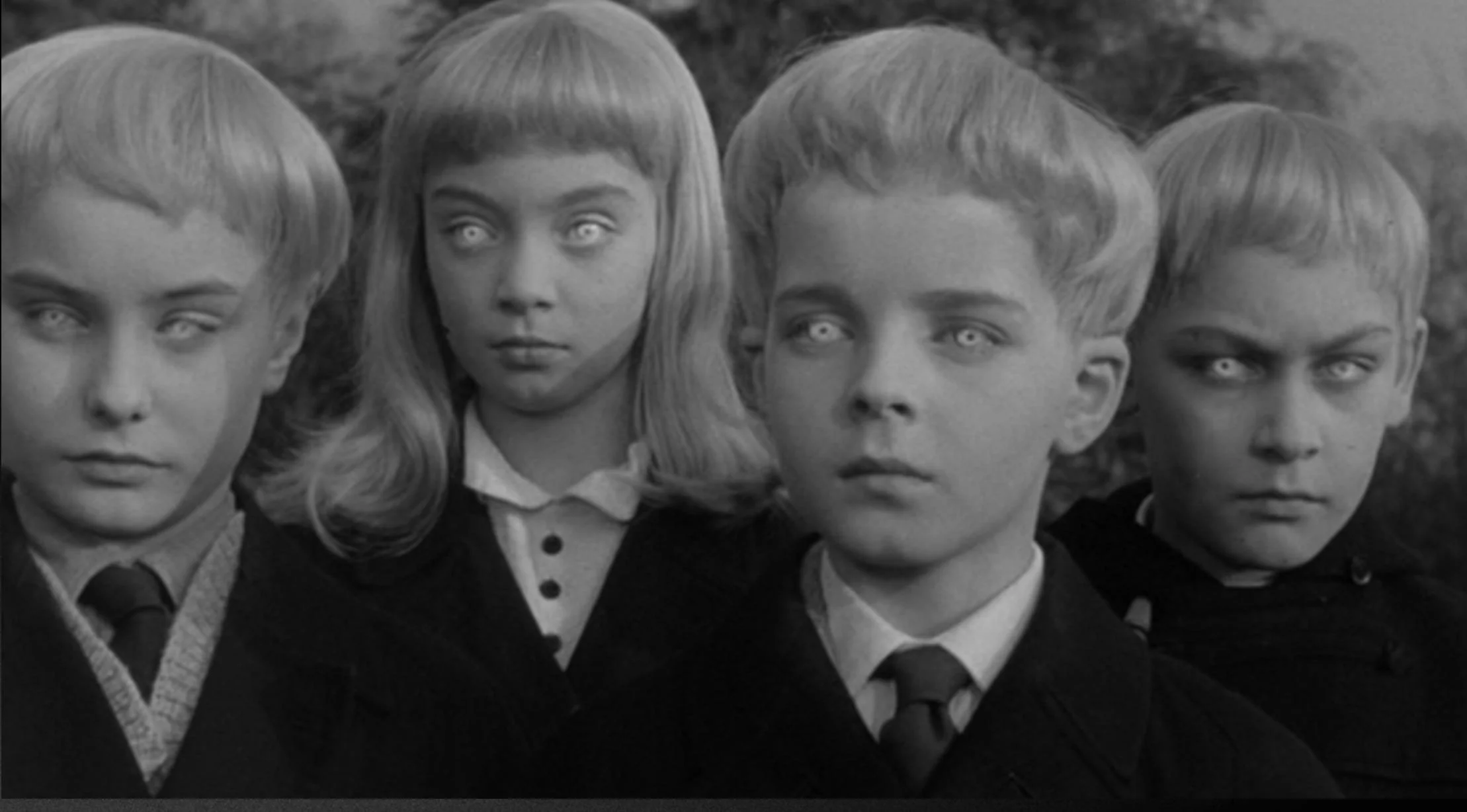TikTok, TikTok, Your Days are Numbered
TikTok churns up ancient if not irrational fear (Village of the Damned, MGM) .
Dear Wags,
After whizzing by a string of warning billboards, we have arrived at a cliff’s edge. Somewhere before 2010, there was media, a discrete thing we manufactured and indulged in, and there was us. Now, we are most awkwardly fused.
In the highly developed world, humanity has been subsumed in the information ecosystem. Performance, commerce, scandal, love, war, and adolescence merge with ceaseless virtual activity. It’s getting tricky, disentangling the flesh and blood We from our digital avatars.
A process of disembodiment began under our noses. Its promoters talked up the positives—the friends!—while ignoring bummers that settle in the still-tangible gut. Increasingly, the public views a maximally digitized future not as a happy, shiny metaverse but a bottomless abyss. We can’t wrap our monkey brains around where we’re headed, but retain enough animal instinct to be scared.
That sort of anxiety fuels politics. Congressional moves against TikTok are hardly Lexington and Concord. Still, it’s a sign our species—or at least, an avatar called the regulatory state—is straining to apply the breaks.
Like any human backlash against transformation, there will be collateral damage. ByteDance, TikTok’s owner, will likely be forced to sell the video-sharing app or see it banished from U.S. smartphones. Whatever, that’s the least of it.
Americans love and hate social media the way junkies love and hate heroin. We spend the wee hours gawping at grandmas doing the Cha Cha Slide, but suspect (not without evidence) that algorithmic manipulations threaten mental health and civic order. Most urgently, we fear tech mischief maims our kids.
This amorphous blob of worry has hardened into a club, which presently thumps the easiest target—that Chinese outfit with access to the data of 170 million Americans. Libertarians, civil and otherwise, will register complaints, but the thrash over TikTok isn’t irrational. Judging by oblique hints from elected officials, they may have viewed classified evidence of chicanery.
Or maybe they’re flailing around like the rest of us, desperate to change course. In either case, this episode maps onto more profound unease. Here we have all the galvanizing ingredients — disruptive technology, a foreign menace, impressionable youth—of old-fashioned moral panic. Frightened people do rash things.
Still, fear doesn’t pop out of the blue. Older generations are meant to revile what kids get up to, but TikTok isn’t another septum piercing. It’s a wildly popular video-sharing platform owned by a company under the thumb of a totalitarian adversary.
We already live in a world where malefactors use social platforms for nefarious purposes. National security gurus are paid to deal in dark potentialities, not to tell us there’s nothing to whinge about. Given that, are we meant to just leave the door ajar?
Cynical vacillation from Donald J. Trump aside, efforts to constrain the app are miraculously bipartisan. And TikTok’s efforts to get creators and fans to pressure their representatives may have backfired. Not all the platform’s users are so very young, but many protest messages to the Hill were sent by middle schoolers. They don’t vote, but their vexed mothers do.
Broadly, the more dependent Americans of all types become on social media, the more they mistrust it. According to Pew, 64 percent of those surveyed believe social platforms have a negative effect on society. This constituency seems to want something done. Should TikTok be dispatched, their unease won’t be swiped away.


